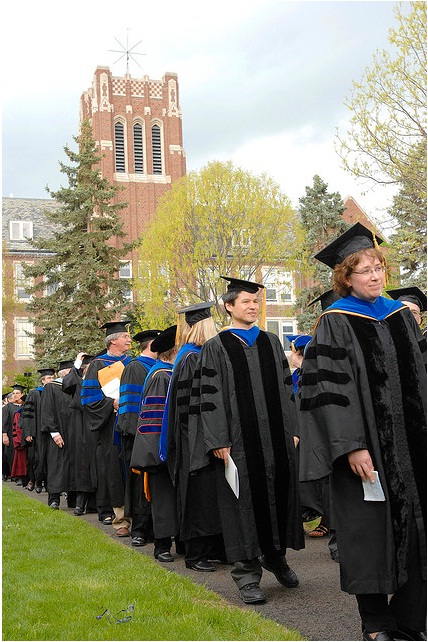Thought Leadership Development: Pros and Cons of Academic Partnerships for Research
Often, when developing a thought leadership strategy, a survey will be suggested as a tactic. And it’s frequently a fantastic idea – surveys can help marketers establish a point of view, get “above product” by talking about trends or develop content for a specific target market. Generally, the media is receptive to research as well – in a story, data can help illustrate a theme or a core point, and can add credibility to anecdotal evidence found through interviews (check out Prudential’s study, The African American Financial Experience and MetLife’s* survey, the Employee Benefits Trends Study to see recent examples of two research projects that made big media splashes).
But today, surveys as a marketing tool are quite common, which means that there is more competition to excite the media and earn their ink, and less “white space” available for undiscovered/unexamined topics.
This doesn’t mean that surveys should be off the table – not at all. It just means that marketers need to up their game.
One option that we are increasingly exploring is academic partnerships with Ph.D.s that have experience with the topic in question. But partnering with any outside source can be a leap of faith (see my colleague Aven’s post on media partnerships) – and academic collaborations come with their own set of pros and cons:
Pros:
- Academics know how to do research. This may sound obvious, and it is, but companies and marketers may need guidance when it comes to developing the research study and analyzing the data. Often, academics will want to explore less traditional types of research methods than questionnaires and focus groups – which can help separate your research from the pack.
- Academics have their fingers on the pulse of trends. As marketers, we pride ourselves on being in the know about everything in our industry – and so do Ph.Ds. But academics look at the same subject with a different perspective, which can help to make your research even more relevant and timely.
- Academics can force you to not fall into “corporate speak.” While surveys are (of course) typically conducted by marketers for 100% altruistic, thought leadership-defining purposes, we know that there is often a root cause – a new product or initiative to support, or customer base to attract. A partnership can help marketers stay true to the goal of thought leadership, and while supporting the underlying initiative, ensure that the overall message stays “above product.”
- Academics add a layer of credibility and objectivity. A partnership is akin to a third-party endorsement – and in a world where everyone is a skeptic, being able to say that a research project was conducted in conjunction with a respected Ph.D. helps to lower raised eyebrows.
Cons:
- You will have to give up some ownership of the research. A partnership where the academic just wants to lend their name to the project and rubber stamp what you already have planned may sound too good to be true, and it is. You’ll have to be comfortable making compromises so both parties are on board with the direction.
- You will have to pay them (and disclose it). A partnership means that there is an added cost to the project. And, in recent years, there has been increased scrutiny of academics conducting research paid for by corporations, meaning that it’s very important to disclose to outside parties that it was a paid collaboration.
- The media may want to speak with them, and not you. Media coverage is frequently a primary goal of conducting research, and reporters often like to speak with the person conducting the research versus the company that paid for it. Academics are also viewed as more impartial, which means that they won’t fall into marketing speak when talking about the “ah-has!” of the research, making them attractive to journalists. So be sure to clarify in the contract how media interviews will be conducted, and define important talking points beforehand.
What do you think? Are there pros and cons of partnering with an academic for a research project that you’d add to this list?
*MetLife is a client
To reach Katherine:
Phone: 212.840.1661
Email: katherine@blisspr.com
Twitter: @kilpatrickk
Linked In: Katherine Kilpatrick
